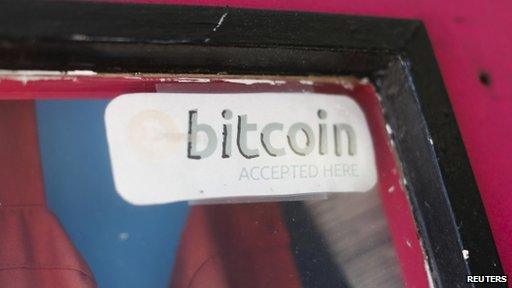China's central bank hit in net attack
- Published

Bitcoins are starting to be used to pay for real world goods and services
China's central bank has been hit by a hack attack that briefly made its website unreachable.
The attack is thought to have been in retaliation for government action to restrict trading in bitcoins.
The Chinese action meant bitcoins fell to less than half the value that they were recently being traded for.
Some online exchanges in China that let people buy and sell the virtual currency were also targeted.
The website of the People's Bank of China (PBoC) and some exchanges were hit by what is known as a Distributed Denial of Service attack. This attempts to overwhelm the servers behind websites by bombarding them with more data than they can handle.
The attacks took place late on Wednesday and meant that the PBoC website was only intermittently reachable. A spokesman for the bank said it was working to get the website running again.
Also hit were bitcoin exchanges such as BTC which said it coped better with the attack because it had been a regular target of DDoS attempts.
In a statement it "strongly condemned" the hackers that targeted the central bank site.
The attacks come after China took steps to limit trade in bitcoins - a virtual currency that many Chinese people are believed to be using to get around restrictions on how much money they can move across the country's borders.
On 5 December, China's central bank issued advice about bitcoin that banned the nation's banks from handling transactions carried out with them.
On 18 December, China took further action by stopping payment providers working with bitcoin exchanges. This led to a 60% fall in the value of bitcoins.
Trade in the digital cash has recovered and now one bitcoin is worth about $620 (£377). This is below the peak reached on 1 December when each bitcoin was worth more than $1,000.
- Published18 December 2013
- Published17 December 2013
- Published13 December 2013
- Published13 December 2013